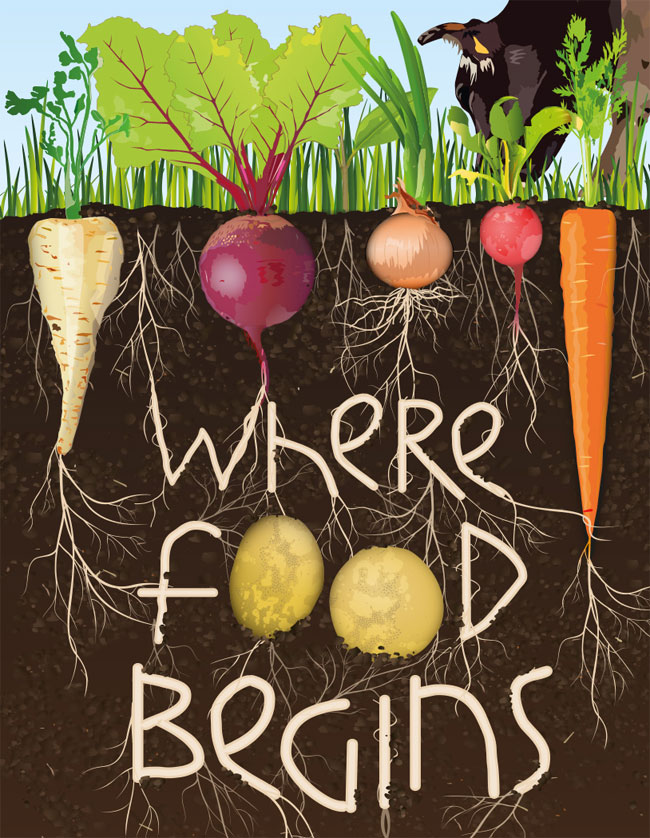With slogan: ”Healthy Soils for Healthy Life” Agricultural Organisation (FAO) and the International Union of Soil Studies (IUSS) of the UNO United Nations Organisation launched and announced the 5th December 2014 to be the International Soil Day. The aim of the International Year is to draw the attention of the decision makers and the society to the importance of sustainable soil use and nutrition control.
Only 12% of the surface of our planet is suitable for agricultural purposes, which is only slightly over one and a half billion Hectares. However, 95 % of food is related to soil in some way therefore, it is our common interest to preserve productivity of our lands.
Today, more than 250 ha agricultural area disappears daily in Europe due to the development of settlements and that of the road system. The domestic situation is not any better either. The size of arable fields decreases by 2 000 ha yearly due to the road construction of motorways. Another issue that keeps getting more serious is that the thickness of productive layer keeps decreasing. We have reached the point, when our existing arable fields can only supply the population of Earth only for a limited period of time. Natural erosion and infrastructure keep further spoiling the situation.
Inappropriate production of agriculture and forestry increases the effect of natural erosion (wind, water). The organic content off our soils keep decreasing year by year and their bio-diversity gets lower and lower as well. Plant growing got reduced to growing only the most important plant types – wheat, corn and rice.
Crop areas in the world 2014-2015.:
Crop areas of cereals in the world – total of 700 Million ha, of which:
- Wheat: 225 Million ha
- Corn: 160 Million ha
Intensive agriculture gets highlighted year after year, which unfortunately in most cases is accompanied with exploiting the soil. Although, the educated agricultural producers know that n order to reach yield records, we need to give all the goods to the soil. They are aware how important it is for the plants to preserve and maintain the ideal soil conditions. An important part of the ideal soil condition is the existence of micro organisms (bacteria) living in the soil.
The Rizodyne soil activator of Fertilia’s own development helps reach the ideal soil condition by helping breed the existing micro organisms living in the soil by means of organic sulphur and chelating. The Rizodyne soil activator boosts life of the soil by the various organic and mineral agents.
Based on the by now mandatory soil analysis data it is worth taking our Rizotec Expert Advising Program. The individual composition of fertilisers customised for the growers’ needs ensures that only what is needed, what will be used and only in the needed portion will be applied. This is managed in an environmentally friendly and economical way.
We know what our soil was like, what it needed, we know what we added and by that what yield growth we reached in the given culture and year. This is the basis of precision farming.
 |


